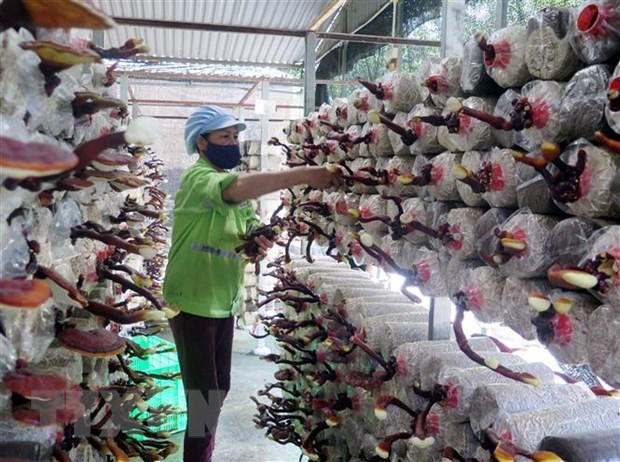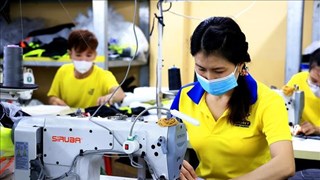Vietnam looks to apply biotechnology for sustainable development
The Politburo recently issued a resolution on the development and application of biotechnology serving the country’s sustainable progress in the new situation.
 By 2045, Vietnam is expected to have a developed bio-tech sector and become one of the leading hubs of smart production and services, and bio-tech start-up and innovation in Asia. (Source: suckhoecongdongonline.vn)
By 2045, Vietnam is expected to have a developed bio-tech sector and become one of the leading hubs of smart production and services, and bio-tech start-up and innovation in Asia. (Source: suckhoecongdongonline.vn)Accordingly, under Resolution No. 36-NQ/TW dated January 30, 2023, Vietnam targets becoming one of the top 10 Asian countries in terms of bio-tech production and services by 2030. The bio-tech industry will become an important economic and technical sector, with the number of firms increasing by half in terms of investment scale and growth rate and half of imported bio-tech products being replaced. The sector is expected to contribute to 7% of the gross domestic product (GDP).
By 2045, Vietnam is expected to have a developed bio-tech sector and become one of the leading hubs of smart production and services, and bio-tech start-up and innovation in Asia. The sector will add 10-15% to the GDP by that time.
In Vietnam, given its tropical climate conditions and economic progression from agriculture, biotechnology plays a notably crucial role in the industrialisation and modernisation efforts, contributing to ensuring food security, economic restructuring, and sustainable development.
Particularly in the realm of environmental protection, biotechnology has brought several advantageous solutions involving the degradation of inorganic and organic pollutants, waste treatment, industrial waste processing, and the use of microorganisms to address oil spills or oil contamination incidents.
 Harvesting antler-type fruiting bodies of Ganoderma lucidum at Phu Gia Biotechnology Co., Ltd., Thai Nguyen province (Photo: VNA)
Harvesting antler-type fruiting bodies of Ganoderma lucidum at Phu Gia Biotechnology Co., Ltd., Thai Nguyen province (Photo: VNA)In the context of the world's green transition, Vietnam is one of the pioneering nations committed to achieving net-zero emissions by 2050. Therefore, the adoption of biotechnology for environmental protection is highly necessary.
However, the country needs to address challenges related to investment resources, its legal system, and policy mechanisms serving the research, development, and the application of biotechnology./.













